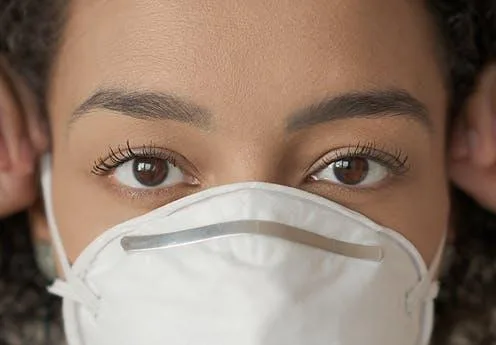Pia Victoria Velasco, MD, FPDS
A. FACE MASK SKIN CARE – Masks play an important role in preventing the spread of Coronavirus. However, regular use of masks can cause skin problems such as acne, rashes and even itchiness. To prevent these skin problems, her are some helpful skin care tips:
- Cleanse and moisturize your face daily. – Dry skin is a common problem following the regular use of facemasks. To prevent this, use a mild fragrance-free cleanser when washing your face. Another helpful tip is to regularly apply a moisturizer that adds a protective layer to prevent dryness. To know more about the ideal moisturizer for your skin type, consult with a board-certified dermatologist.
- Protect your lips. –Chapped lips are common problems from the regular use of facemasks. Apply petroleum jelly especially after washing your face, before wearing face masks and before bedtime.
- Avoid using make-up. –
Heavy make-up is more likely to clog your pores and lead to break outs. If you cannot skip your make-up, look for products labeled as “non-comedogenic” which will not clog your pores. Use make-up on the areas on the eye area only and skip it on the areas covered by the mask to lessen the risk of maskne.
- Avoid experimenting on new skin care products. – With the current use of facemasks, your skin is likely to be more sensitive. To prevent further problems, avoid products that may irritate the skin. They can be labeled as exfoliants, glycolic acid and retinoids. If you find that your skin is more sensitive to these ingredients, consider decreasing the frequency of application or shifting to gentler products.
- Frequently change your facemasks. – Depending on the face masks that you are using, it is recommended to frequently change face masks. For those who use cloth masks, it is advisable to wash it daily to remove germs and other particles. Use a fragrance-free hypoallergenic detergent with warm water, or otherwise as instructed on the label.
B. HOW TO COPE WITH HAND DERMATITIS- Hand washing has been a mainstay in controlling the spread of Covid-19. Unfortunately, frequent hand washing and use of alcohol have often left hands feeling dry and irritated. Here are some helpful tips on how to keep Coronavirus away without compromising care for our hands:
- Wash your hands for at least 20 seconds in lukewarm water. – Avoid washing your hands in hot water as this may further strip our skin of its natural oils. Washing our hands for 20 seconds in lukewarm water is sufficient in thoroughly cleansing our hands. Lather the back of your hands, between your fingers and under your nails.
- Dry your hands gently using a clean towel. – It is recommended to dry your hands until they are slightly damp. You may also opt to air dry your hands if a clean towel is not available.
- Apply hand cream or ointment thoroughly on to your hands. – The best time to apply your hand care product is when your hands are slightly damp. Regular use of these products will leave your hands less prone to irritation. Look for hand care products which contain mineral oil or petroleum jelly and are labeled as “fragrance-free”.
- Apply hand cream or ointment immediately after applying your hand sanitizer. – The Center for Disease Control (CDC) recommends alcohol-based products that contain at least 60% alcohol. Alcohol-based products with at least 60% alcohol can leave your hands feeling very dry.
- Working with harsh chemicals and handling of detergents can cause hand eczema. If you are suffering from an existing hand eczema, consult with a board-certified dermatologist.
References:
1. cdc.gov
2. pds.org: Recommendations for Addressing PPE-related Skin Care Issues during the COVID-19 Crisis
3. AAD COVID-19 Coronavirus Resource Center




